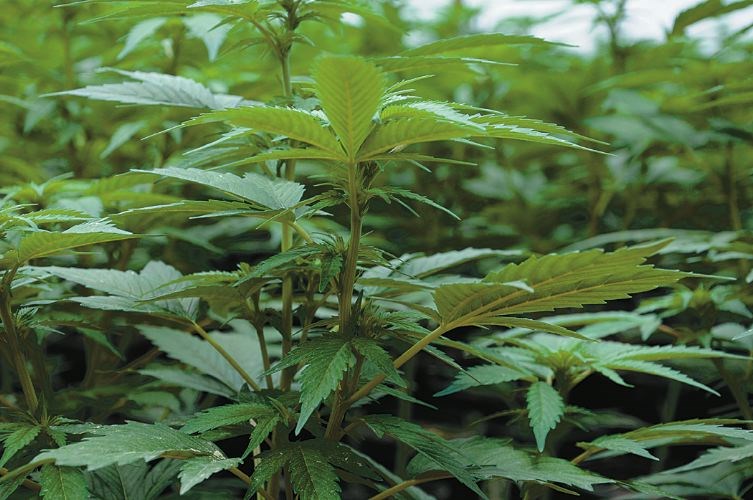Sniff. There is something in the air.
But it is not the rampant smell of marijuana pervading our streets. Children high on drugs are not running wild. People are still going to work. The world has not ended.
The legalization of marijuana, or cannabis, last Wednesday certainly has dominated the news but it hasn't brought an end to this country as some have predicted. It is also not going to solve all of our problems with billions in new government revenue.
Simply put - marijuana is a commercial product which has moved from controlled access to open access. But because it was prohibited for so many years as an illicit substance, moving it to an open market has been wrought with controversy.
So let's back up a bit and consider just what makes something a drug.
If I was to define the word, I would say it is a substance which is able to alter a biochemical process or pathway in an organism.
The online version: "A medicine or other substance which has a physiological effect when ingested or otherwise introduced into the body."
Both definitions come to the same point. Drugs are chemical compounds capable of producing changes in a person. While we don't call food a type of drug, in one sense they are closely related and certainly there are a number of drug compounds to be found in food. After all, broccoli contains carcinogenic substances and cyanogenic compounds are found in almonds. These are compounds which can significantly alter our physiology.
The things we call drugs tend to fall into three broad categories. The first is over-the-counter legal drugs such as aspirin or Tylenol which are generally recognized as both safe and something people can self-prescribe. Into this category, we can also put antihistamines, stomach acid controlling compounds, vitamins and a host of other chemical compounds found on the shelves of our local drugstore.
The second category are prescription drugs which are only available through a licensed professional. Compounds such as statins, blood pressure medication, power pain relievers, insulin, antibiotics and a host of other compounds fall into this category.
And the third category are the illicit or illegal substances such as heroin, LSD, MDMA, cocaine and others which we have banned from use.
All three categories contain substances which can harm or kill an individual. All three categories contain substances which can be potentially addictive. All three categories contain substances open to abuse.
So when a Citizen guest editorial, such as last Saturday's, says: "Marijuana is a personal health hazard, a public nuisance and a habit-forming depressant that routinely hurts families, friendships, careers, and other important relationships. The state held a legitimate mandate to stigmatize the substance."
My immediate response is "so do alcohol and tobacco - so what makes marijuana different?"
For that matter, so do opioids and other forms of painkillers along with any number of substances which we sell legally.
What makes a drug illegal versus legal?
Consider the billions of dollars alcohol consumption costs the economy let alone the countless lives lost on our roadways and in our homes. If humans had not been consuming alcohol for millennia and it was brought to market today, would it be legalized?
Doubtful.
Ditto for the nicotine in tobacco.
The drug itself is actually beneficial in small doses but the accompanying compounds generated while smoking it lead to lung disease, coronary heart disease, and a variety of other ailments. Maybe nicotine could be made legal but the delivery mechanism sucks.
The same could be said about marijuana.
The drugs it contains - THC and CBD - have some therapeutic value in addressing nausea, appetite and anxiety, but the delivery mechanism - if smoked - has all the same drawbacks. But is this a reason to ban the substance? If so, shouldn't we also ban cigarettes and other forms of smoking?
The commentary which has filled the airwaves and newspapers over the past week - including this column - take a wide variety of stances on the substance.
There are lots of questions. No doubt about it. Shifting a controlled or banned substance to the open market is going to generate a lot of questions, regardless of the substance. And with a compound as stigmatized as marijuana, there is no doubt the controversy will continue for some time.
But is it the smell in our air? No, that's just fall coming on.



